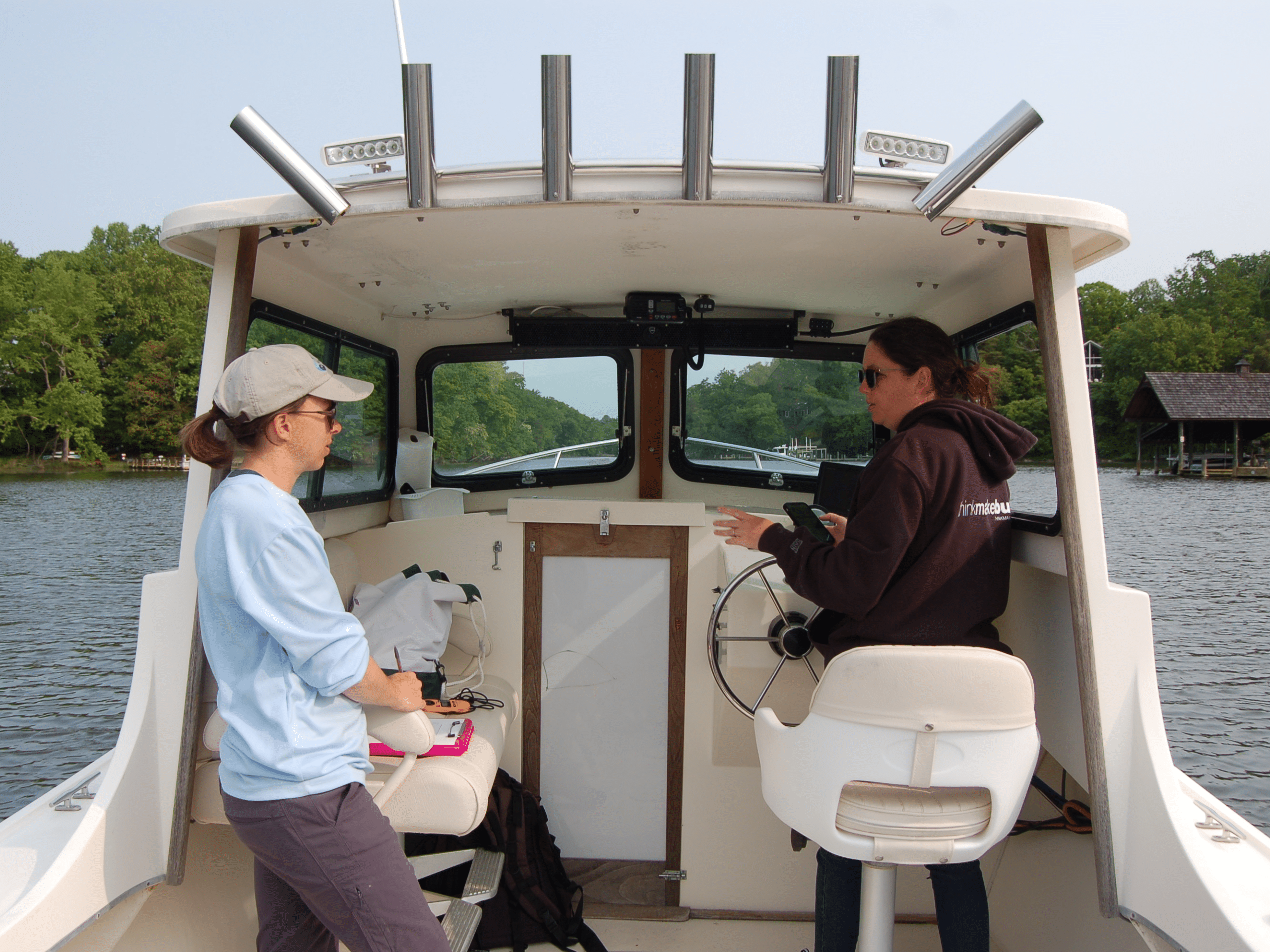Elevating Community Science Around Annapolis

Elevating Community Science: Arundel Rivers Federation and Anne Arundel Community College Join CMC’s Tier 3 Monitoring Groups
Arundel Rivers Federation
This year marks a significant milestone for the Arundel Rivers Federation (ARF) as it joins the Chesapeake Monitoring Cooperative’s (CMC) Tier 3 monitoring groups. This certification represents the highest level of data quality certified by the CMC. Dedicated to the stewardship of the South, West, and Rhode Rivers, ARF has been a leader in environmental advocacy, restoration, and community engagement.
The monitoring program at ARF is spearheaded by Riverkeeper Elle Bassett and Field Technician Mallory Box. Elle Bassett, who joined ARF in the fall of 2022, is the appointed Riverkeeper for the South, West, and Rhode Rivers. She brings a wealth of experience from her four years serving as the Miles-Wye Riverkeeper. In addition to her responsibilities at ARF, she collaborates with Anne Arundel Community College’s water monitoring program. She frequently takes volunteers out for sampling expeditions on her boat, offering hands-on experience in environmental science.
Mallory Box wears multiple hats, involved not only in water monitoring but also in active restoration efforts with ARF. Presently, she is pursuing a Master of Science degree in Environmental Sciences and Policy at Johns Hopkins University, enriching her practical work with academic rigor.
Anne Arundel Community College
Similarly, Anne Arundel Community College (AACC) has also successfully completed their field audit and received the Tier 3 certification. The program is under the guidance of Dr. Tammy Domanski, a biology professor and the director of AACC’s Environmental Center. Staff and students at the center engage in regular water quality and bacteria monitoring activities. These studies cover an expansive geographical range, including sites on the Severn, Magothy, West, and Rhode Rivers, as well as Rock, Back, and Spa Creek.
Apart from water monitoring, Dr. Domanski and her lab are deeply involved in research on horseshoe crabs. To further streamline the data collection process, students at AACC are in the process of developing a dedicated app for monitors to record data seamlessly.
Both ARF and AACC stand as exemplary models of community engagement and rigorous scientific monitoring. Organizations like these contribute positively to the ongoing efforts of water monitoring in the Chesapeake Bay region.
